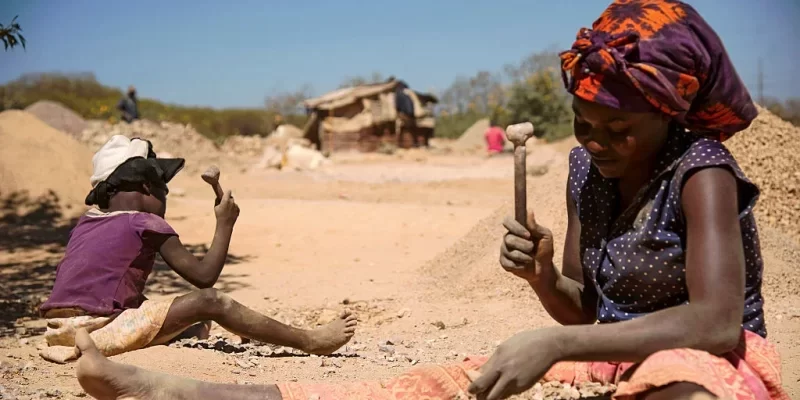
This week, the United States Department of Labor added cobalt ore (heterogenite) from the Democratic Republic of Congo (DRC) to its 2024 List of Goods Produced by Child Labor or Forced Labor (TVPRA List).
This designation highlights the high risk of cobalt being produced under forced labor conditions. According to a briefing note addressed to the DRC government and reviewed by DESKECO.COM on September 25, 2024, earlier versions of the report focused on child labor in artisanal mining. This year’s update, however, also links forced labor to both artisanal and industrial cobalt mining operations.
Congolese cobalt is one of 29 new products included in the 2024 list, alongside copper ore from the DRC and Zambia.
Cobalt is vital for products that are considered critical to the green energy transition, advanced computing, and national security, including electric vehicles, semiconductors, and batteries.
The advisory specifies that the inclusion of cobalt does not mean these goods will automatically be banned from entering U.S. borders.
However, it does raise the likelihood of increased scrutiny by U.S. authorities, which could result in import restrictions.
The report underscores that products utilizing cobalt, such as electric vehicles, mobile devices, and medical implants, are at risk of being linked to forced and child labor in their supply chains.
The TVPRA List is updated every two years by the U.S. Department of Labor under the Trafficking Victims Protection Reauthorization Act.
Its purpose is to raise awareness of the elevated risks that certain goods from specific countries may have been produced using forced or child labor.
This list is designed as a tool for civil society to expose labor abuses and for businesses to work towards mitigating such violations in global supply chains.
Since 2018, the TVPRA’s mandate has expanded to cover products made using “inputs,” meaning that items like electric vehicles and wearables containing cobalt are also deemed “at risk” of labor abuses.
The 2024 edition of the TVPRA list includes 12 critical minerals and materials. Goods may be removed from the list if sufficient evidence proves that child or forced labor is no longer systematically involved in their production, with six products being removed in this year’s edition.
The report highlights several indicators of forced labor within cobalt mining, such as excessive overtime, hazardous working conditions, layoffs, unpaid wages, fines, debt bondage, and other human rights violations.
It also notes that large Chinese-owned mining operations dominate the cobalt industry in the DRC.
In response to these concerns, the U.S. government has launched several initiatives aimed at promoting ethically sourced cobalt while fostering decent work opportunities and sustainable economic development for local Congolese communities.
Among these are the ILAB-funded Labor Standards Promotion Support Project, which strengthens the capacity of labor inspectors to detect and address labor violations.
Additional initiatives include the Combating Child Labor in the Cobalt Industry in the DRC (COTECCO) project and the Global Traceability Protocol, which aim to ensure transparency and ethical practices in the cobalt supply chain.
The Cobalt Institute has collaborated with the U.S. Department of Labor on these efforts, further underscoring the need for collective action among governments, the private sector, and civil society to eliminate forced labor and child exploitation from the cobalt industry.





